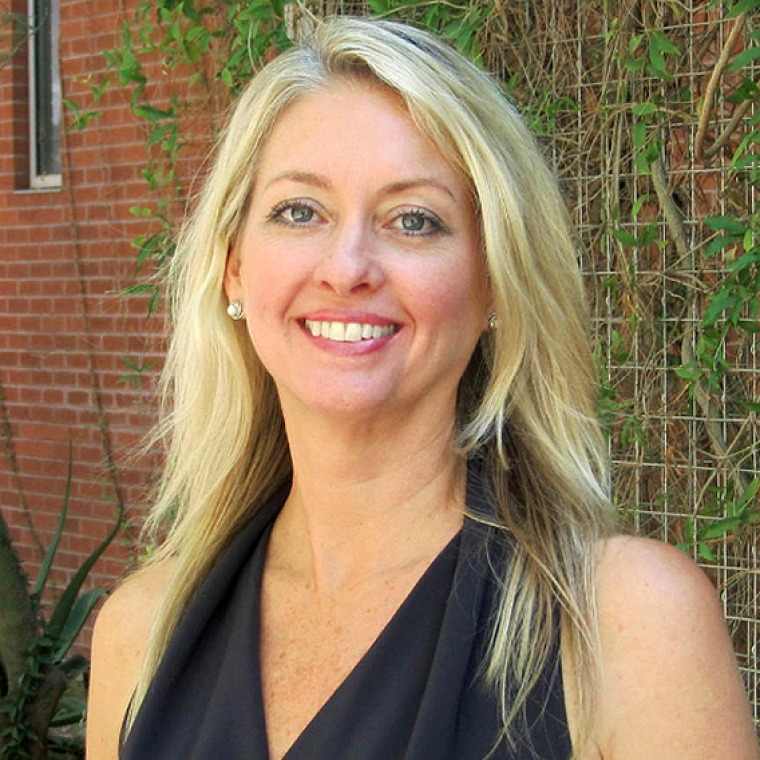Kelly Reynolds

1295 N. Martin Avenue
Drachman Hall A235
PO Box: 245210
Tucson, AZ 85724
Documents
Kelly Reynolds MSPH, PhD is Professor and Chair of the Department of Community, Environment and Policy; Director of the Environment, Exposure Science and Risk Assessment Center (ESRAC) at the University of Arizona.
Since 1990, Dr. Reynolds has worked as a researcher and public health educator in environmental science, specializing in water quality, food safety, and disease transmission. Her extensive experience in those research areas includes her role as a Principal Investigator of numerous projects and the publication of hundreds of journal articles, book chapters, and professional reports.
Dr. Reynolds is working on several projects, including one in which she joins UA engineers to apply lasers to detect human viruses in drinking water. This type of technology would not only expedite the process of discovering water-borne viruses, but it could detect viruses that were previously undetectable. Between 1971 and 2000 in the United States, water-borne pathogens resulted in nearly 600,000 cases of illness. Dr. Reynolds suspects that millions of cases were undocumented because people who were affected suffered relatively minor symptoms.
She is also the Principal Investigator of two other projects, which look for contaminants in the water supply and in the home. In the water study, Dr. Reynolds aims to assess the risk of tap water by analyzing the types of disease-causing organisms captured in the filters of water vending machines. In the home hygiene study, Dr. Reynolds is monitoring the Methicillin-resistant Staphylococcus aureus (MRSA) in the home by identifying the bacteria's survival in soft surfaces, including carpets and towels. The MRSA bacteria could cause severe skin infections and result in hospitalizations, or rarely death.
Dr. Reynolds hopes that her research yields information that people will use in order to reduce their risk of illness. "From a scientist's point of view, we can continue to develop and improve methods to identify hazards," she said. But that information only goes so far if the public doesn't actively participate in reducing their exposure.
Dr. Reynolds received her doctorate degree from the University of Arizona in agriculture and life sciences in the Department of Soil, Water and Environmental Science, and a master's degree from the University of South Florida in the Department of Environmental and Occupational Health. She has previously worked as a research technician, research fellow and an assistant research scientist at the UA since 1987.
Education:
1995, PhD, Agriculture and Life Sciences, University of Arizona
1992, MS, Public Health, University of South Florida
1989, BS, Microbiology, University of Arizona
Publications:
Yoon, J.Y., S. Chung, K.A. Reynolds. 2020. Single virus copy level detection of norovirus on paper microfluidic chip with smartphone-based fluorescence microscope. Nature Protocols.
Wilson, A.M., M.F. King, M. Weir, J.D. Sexton, R. Canales, G. Kostov, T. Julian, C. Noakes, K.A. Reynolds. 2020. Evaluating a transfer gradient assumption in a fomite-mediated microbial transmission model using an experimental and Bayesian approach. Journal of the Royal Society Interface.
Reynolds, K.A., J.D. Sexton, F. Garavito, B. Anderson, J.M. Ivaska. 2020. Impact of a whole-room hypochlorous acid atomizing disinfection system on healthcare surface contamination, pathogen transfer, and labor efficiency. American Journal of Infection Control.
Abdel Shakour, M.A., R.A. Abdel Salam, G.M. Hadad, D.T.A. Youssef, K.A. Reynolds. 2020. Monitoring of cyanobacterial toxins in the Suez Canal region's freshwater, Egypt. Analytical Chemistry Letters.
Verhougstraete, M.P., K. Pogreba-Brown, R. Canales, K.A. Reynolds, C. Condé Lamparelli, M. Inês Zanoli Sato, J.N.S. Eisenberg. 2020. A local beach Quantitative Microbial Risk Assessment in Sao Paulo, Brazil and comparison to non-local recreational water quality guidelines. Water Research.
Malika, N., G. Barbagelatta, M. Penny, K. Reynolds, R. Sinclair. 2020. Impact of housing and infrastructure on handwashing in Peru. International Health.
Contreras, R.D., A. M. Wilson, F. Garavito, J.D. Sexton, K.A. Reynolds, R.C. Canales. 2020. Assessing virus infection probability in an office setting using stochastic simulation. Journal of Occupational & Environmental Hygiene. 17(1):30-37. https://doi.org/10.1080/15459624.2019.1691219
Degree(s)
- PhD
- MSPH

